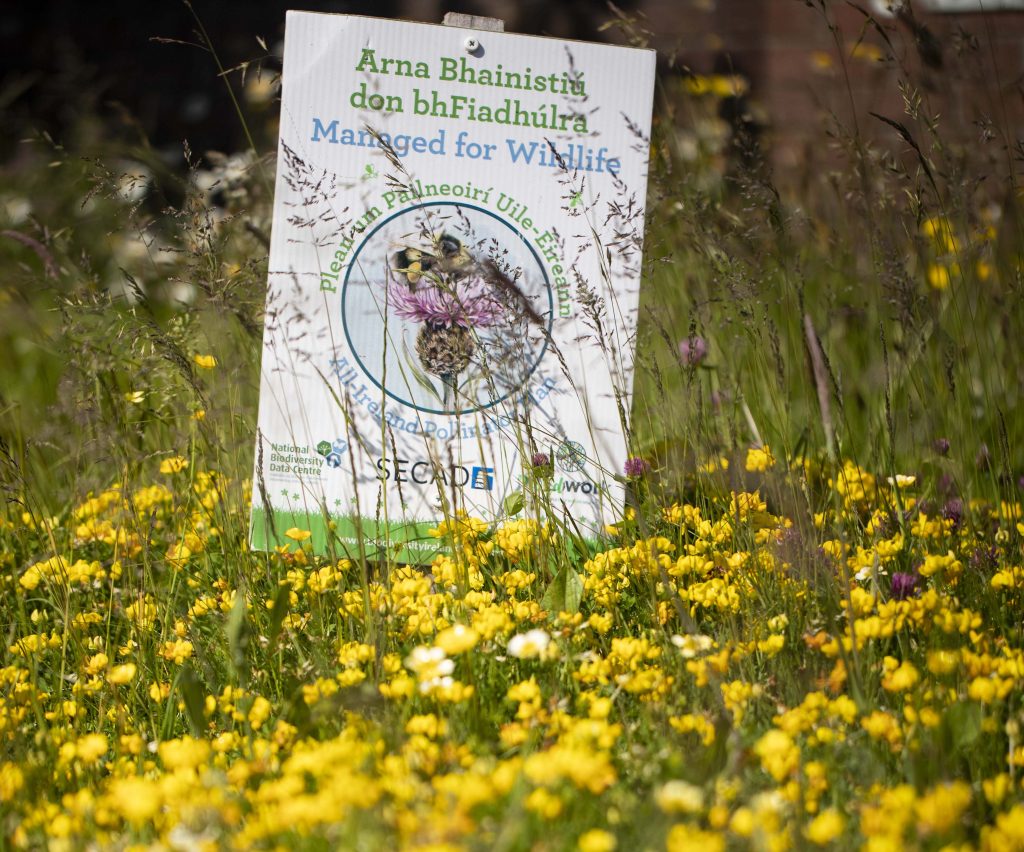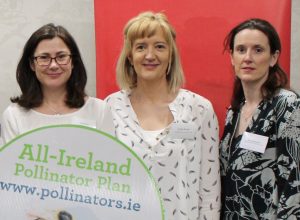We are incredibly grateful to have had the opportunity to coordinate the implementation of the All-Ireland Pollinator Plan (AIPP) 2015-2020. Through management of this initiative on biodiversity conservation, and through working in collaboration with all our partners, we have learned many lessons. We often get asked to share these lessons – both within Ireland and internationally. Below, we have tried to briefly summarise the key lessons we have learned so far:
- The bottom-up, grassroots approach to the initiative has been a core strength. From organisations to individuals, people have assessed why they are being asked to help; looked at what they are being requested to do; and, on that basis, decided if they wanted to get involved.
- People have responded positively to the transparent management of the initiative. This has been aided hugely by having a strong, active multi-sectoral steering group, led by people with a background in the subject (pollination ecology in this case). Transparently managed consultations, both with the public, and with respective stakeholders during development of sectoral resources have been extremely important.
- The All-Ireland nature of the Plan has been a huge strength and has enabled very valuable sharing of knowledge and expertise across both jurisdictions. Efforts have continually been made to ensure that the framework, and all resources produced, apply equally both North and South in terms of structure and language.
- The Plan is voluntary, and organisations have responded positively by doing as much as they can. In a multi-annual and multi-sectoral initiative, this can provide flexibility. Emphasis has been placed on constructiveness and on celebrating the biodiversity that we have. We have tried to ensure that all messaging is positive, and solution driven.
- We have learned that it is important to plan your message carefully. The core message should be clean, simple, and easy to communicate (food, shelter, and safety for bees). We have deliberately used wild bees as a flagship for pollinators and biodiversity conservation generally.
- Others cannot be expected to assist unless you are very clear on what you are asking them to do. Perhaps the greatest lesson we have learned is the power of evidence-based guidelines for different sectors, which were developed in consultation and were written in such a way that they were carefully tailored to each target audience. This has made it as easy as possible for others to get behind the initiative. We have focused on positive actions that are low cost and easy to implement. We have relied on existing structures and networks to disseminate this information.
- It is very important that information is easily accessible. We have made as many evidence-based resources as possible available on the website, with all free to download. We have tried to continually update the website with new content and to support the core evidence-based guidelines with videos, animations, blogs, etc. to assist with knowledge sharing.
- In terms of communication, three important lessons we have learned are: communication should be peer-to-peer where possible; it pays to deliberately and consciously try to reach new audiences rather than focus on the already converted; communication works best when it is an active message, and when the audience understands what they are being asked to do.
- Working in partnerships and creating a strong sense that it is a shared plan of action has been very important. The success of the Plan is due to lots of small actions taken together. We have tried to continually encourage partnerships, and to work within existing networks and frameworks. We have used newsletters, events and blogs, as well as our social media channels to show that everyone is helping, and that together we can make changes for the better.
- A crucial part of the All-Ireland Pollinator Plan is in transparently tracking progress – regularly asking ‘is it working?’ This has been aided through management of implementation by the National Biodiversity Data Centre as it has meant the Plan can be linked directly to data and monitoring of the wild pollinators themselves.
- We have learned the power of local champions. Across all sectors, there are individuals who champion the Pollinator Plan, mainly in a voluntary capacity. Without a shadow of doubt, the Plan would not have achieved what it has without those people, and we can never thank or acknowledge them sufficiently. Each December, we send a certificate and our personal thanks to a handful of new pollinator champions. Awardees are not publicised, as they are most often people who do not wish to be personally promoted.
- We have learned the importance of being open to adapting, learning and recognising opportunities as the initiative itself has evolved.
Knowledge sharing is an integral part of the AIPP. We have learned much from others during the first phase. Where it is helpful, we are very happy to share what we have learned with other initiatives within Ireland; and with other countries interested in developing their own national pollinator strategies. We thank all those who have interacted with the AIPP 2015-2020 and made it a success, and we look forward to the launch of the next Plan for 2021-2025.
– Úna FitzPatrick & Juanita Browne, National Biodiversity Data Centre; & Jane Stout, Trinity College Dublin
To learn more about our progress over the first five years, see our recent publication: Working Together for Biodiversity 2015 -2020


